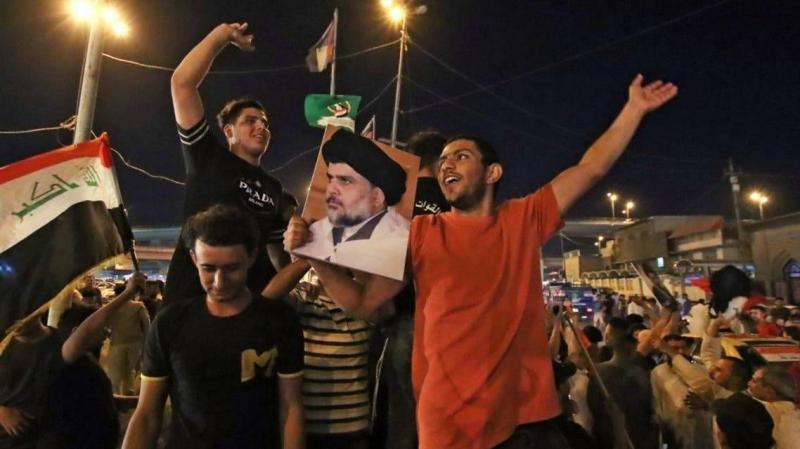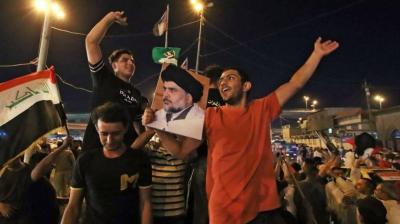Preliminary results from the general parliamentary elections in Iraq, according to the High Electoral Commission, revealed that Shia cleric Muqtada al-Sadr came in first place. Al-Sadr's bloc secured the highest number of parliamentary seats with 73 out of a total of 329 seats, as reported by the Iraqi News Agency "WAA". The al-Sadr movement announced its victory in securing the largest number of parliamentary seats in Iraq, with Muqtada al-Sadr pledging to combat corruption in the country, stating, "Weapons should never be raised outside the state's framework," according to "WAA".
Additionally, the "Taqaddum" bloc, led by former Parliament Speaker Muhammad al-Halbousi, announced its victory with 43 seats, while the "State of Law" bloc came in third with 37 seats in parliament. Furthermore, a correspondent for Al-Arabiya reported that the Kurdistan Democratic Party won the largest number of seats in the Kurdistan region.
The High Electoral Commission also confirmed on Monday its success in organizing fair and transparent elections as promised. In a press conference earlier today, the Chairman of the Commission, Jalil Adnan, stated that "the Commission presented the preliminary election results in the provinces of Diyala, Dhi Qar, Al-Muthanna, Maysan, Wasit, Dohuk, Salah al-Din, Karbala, Najaf, and Erbil." He clarified that "the announcement was made through display screens and on the Commission's website." He added that "the complete preliminary results will be announced tonight" and will be shown on 24 screens in Baghdad and all Iraqi provinces, as well as published on the Commission's website.
However, he clarified that "these results are preliminary and rely on the data received by the Commission via data transmission channels and memory sticks." Regarding the ballot boxes that faced some issues, he indicated that they will be transported to the national office on Tuesday morning. Earlier today, the Commission announced that the initial voter turnout was 41%, noting that this rate varied among some provinces, and announced the start of receiving complaints tomorrow for a duration of three days. It was also added that the number of voters reached 9 million and 77 thousand, while the number of complaints was 119. This turnout percentage represents a significant boycott in the fifth election that Iraq has witnessed since the fall of Saddam Hussein's regime in 2003.
Unprecedented Boycott
In this context, some observers, according to Agence France-Presse, considered that the participation of voters in these early elections was low, even recording an unprecedented boycott rate. They noted that this electoral event barely motivated angry voters frustrated with chronic corruption, declining public services, and the control of some armed factions. They believed that most Iraqis had lost hope that this political system could bring any change capable of improving their living conditions. It is noteworthy that in 2018, the participation rate was 44.52%, according to official figures, which some considered exaggerated at that time. The current elections were called several months ahead of their original scheduled date, after being planned for 2022, in an effort to temper public anger following the popular uprising that erupted in the fall of 2019 against corruption, declining public services, and the economic downturn in a resource-rich country, alongside party quota distribution and the dominance of some armed factions.




